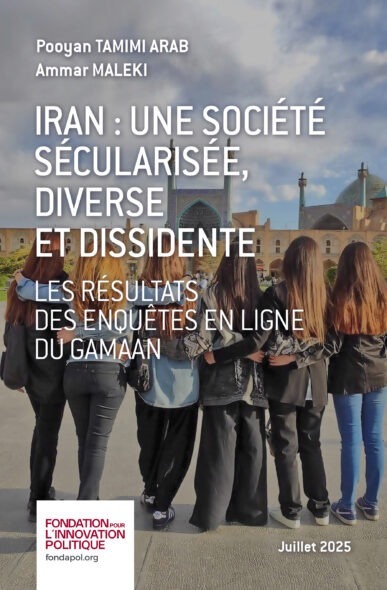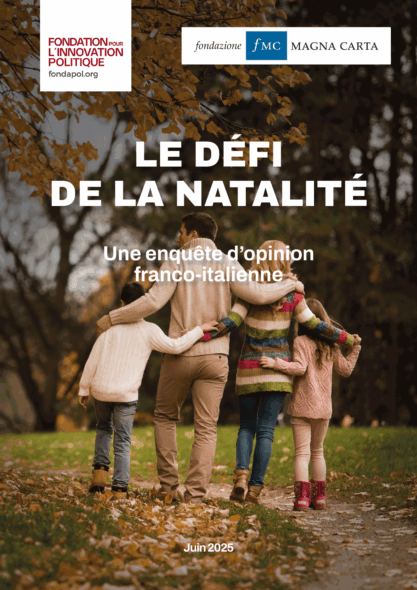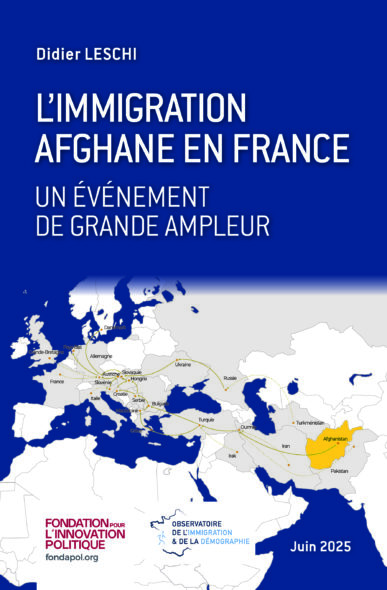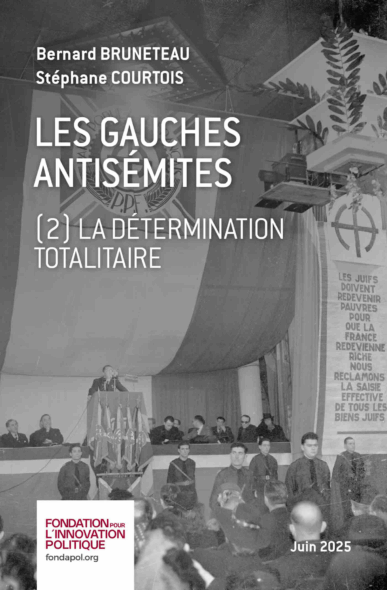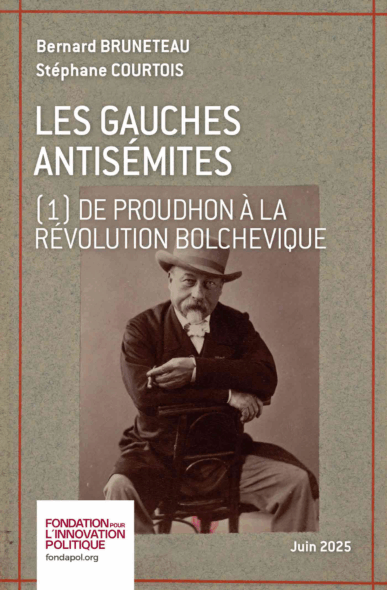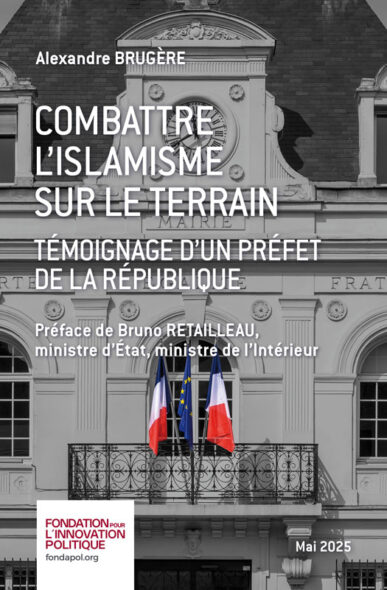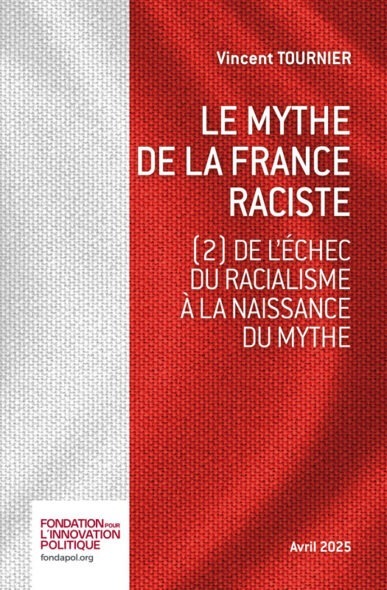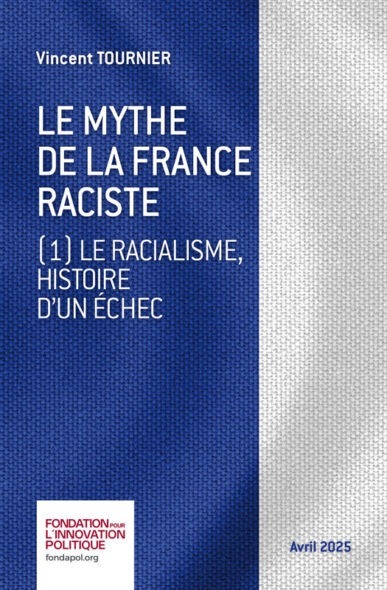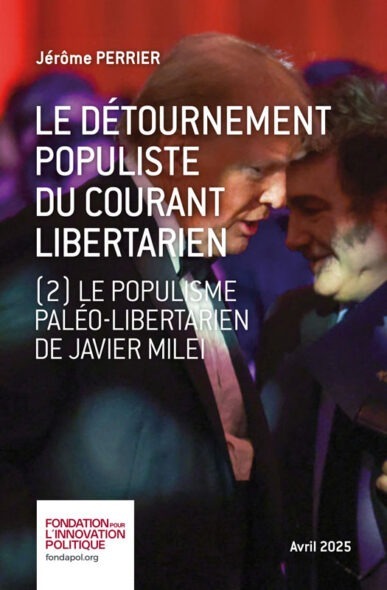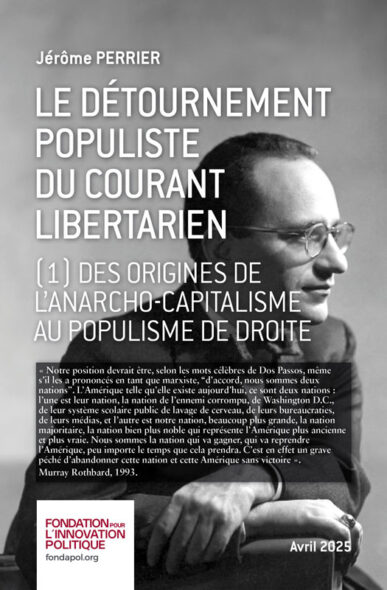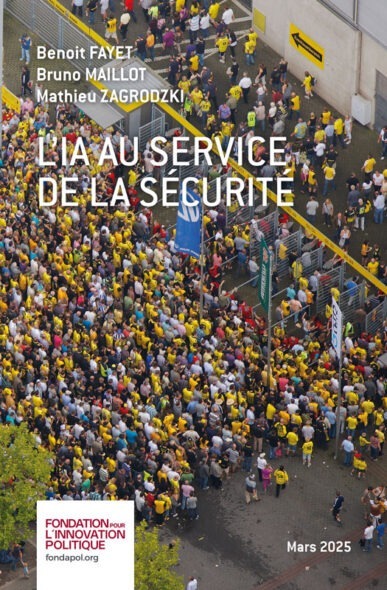Immigration in France: « A refuge for all is a refuge for none », an interview with Didier Leschi
Eugénie Bastié | 11 décembre 2020
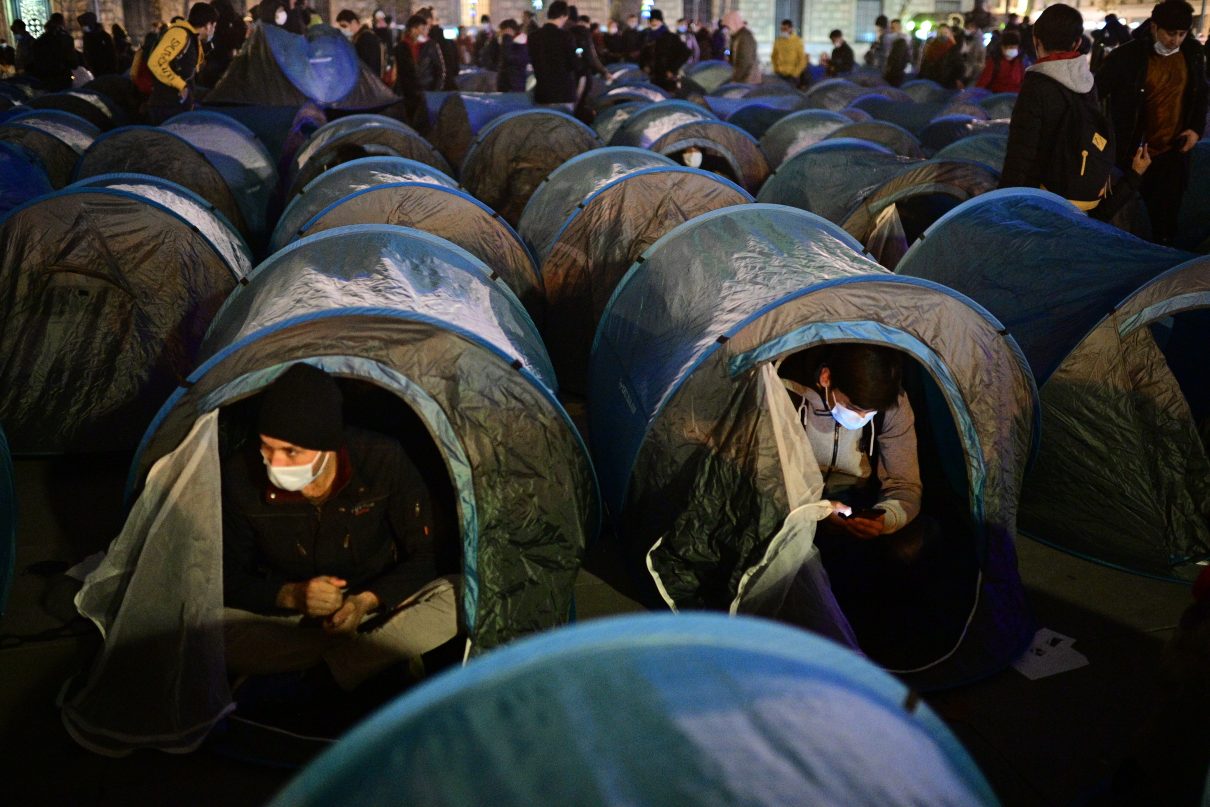
Copyright :
Martin Bureau / AFP
The French Office for Immigration and Integration (Office français de l’immigration et de l’intégration), OFII is a public administrative institution responsible for managing the reception of asylum seekers and refugees present on French soil. It was formed in March 2009 by a merger of several national agencies and has been under the supervision of the French Interior Ministry since 16 November 2010.
| We would like to warmly thank the Figaro newspaper and the journalist Eugénie Bastié for authorising the Fondation pour l’innovation politique to translate and publish this article in English. The original article was published on 25 November 2020. This translation was done by Michael Scott. |
Excerpt: « It is our first-line reception of asylum seekers that has drawn criticism. It is very clear that there is room for improvement. However, we are also faced with the consequences of trying to do things too well… In order to contribute meaningfully to the issue of asylum, the European Union must ensure that decisions are mutually recognised moving forward. »
Didier Leschi
Didier Leschi is the Director General of the French Office for Immigration and Integration (OFII)1. He is the author of the book Ce grand dérangement. L’immigration en face [This great upheaval. Focus on immigration] (Gallimard, coll. « Tracts », 2020) and of the study Migrations : la France singulière [Migration: France’s unique position] (Fondation pour l’innovation politique, October 2018).
The Office for the Protection of Refugees and Stateless Persons (Office français de protection des réfugiés et apatrides, Ofpra) is an establishment of public administration created by the law of 25 July 1952. It is responsible for the application of the Geneva Convention of 28 July 1951 relating to the status of refugees, then the New York Convention of 1954, and independently decides on applications for asylum and statelessness that are submitted to it. It was initially placed under the administrative supervision of the Ministry of Foreign Affairs until 2007, and since 2010 has been under the supervision of the Ministry of the Interior.
State Medical Aid (aide médicale de l’État, AME) is a system that provides access to healthcare for undocumented immigrants. The AME grants 100% coverage for medical and hospital care within the limits of social security rates.
Eugénie Bastié: On the evening of Monday 23 November 2020, migrants were forcibly evacuated from a camp on the Place de la République in central Paris. What are your thoughts about these images and the widespread indignation they have caused?
Didier Leschi: We are all aware that these are difficult human situations. However, the reactions also reveal a significant degree of hypocrisy. In order to provide temporary accommodation, premises are required. Local authorities such as those in Paris are continuously forcing préfets (local officials) to beg for accomodations, while the available hotels or reception centres are full, and thus incapable of immediately absorbing the constant flow of new arrivals, especially of Afghans whose applications have been rejected by other European countries. This is occurring despite the fact that the stock of temporary accommodation has more than doubled since 2015 and new facilities are becoming available. The challenges of integrating refugees have been overlooked in the controversy over first-line reception. The 11,000 people currently in the national reception system struggle to leave it. However, access to housing falls within the remit of both local authorities and central government. I am sorry to say that Paris, like other cities that are advocates of admitting refugees, are not doing all they could to help us integrate those people. If we were able to transfer refugees more quickly from shelter facilities, this would free up space for asylum seekers, and we would be spared such disturbing images.
Some activists and NGOs claim that Europe is a « fortress ». Can Europe and France be accused of being too restrictive?
Too restrictive by what ideal standard? Europe is one of the world’s largest immigration regions. Many of its countries are coveted bubbles. In contrast to other parts of the world and even some OECD nations, countries like France have achieved social improvements that offer a rare quality of life. France allows people without an income to automatically get free access to education and healthcare. The same cannot be said of North America.
Every year, the European Union issues hundreds of thousands of new residence permits. In 2019, France alone issued 274,000 new residence permits, of which 90,000 went to students, many of whom we know will not return to their home countries, 38,000 went to workers, and over 90,000, the largest share of these residence permits, were issued for the purpose of family immigration. This last figure was even higher in the past and reached 200,000 people per year.
Europe is also much sought after by asylum seekers. It has seen over 4 million incoming asylum seekers since 2015. In 2019, some 680,000 applications were filed and 300,000 people granted the protection from a European country. Moreover, France has regained its status as one of the principal host countries for asylum seekers, with 178,000 applications in 2019. Germany is just ahead of us. While numbers of asylum applications have fallen significantly in Germany, they have continued to rise in France among certain nationalities, with few Syrians but large numbers of sub-Saharan Africans, North Africans, and people from former Eastern Bloc countries, including Albania and Georgia.
As in the early 2000s, when we were the top asylum country with 20% of European applications, we are now back at the forefront. This can be partly explained by the fact that we are the last resort for some asylum seekers whose applications have been rejected in other countries. This is particularly true for Afghans.
Classification of the main countries of origin of asylum seekers in France
| Country | Ranking in 2016 | Ranking in 2017 | Ranking in 2018 | Ranking in 2019 |
| Afghanistan | 2 | 2 | 1 | 1 |
| Albania | 4 | 1 | 2 | 2 |
| Algeria | 9 | 9 | 9 | – |
| Bangladesh | 8 | 10 | – | 6 |
| China | 10 | – | – | – |
| Democratic Republic of Congo | 6 | 8 | 6 | – |
| Georgia | – | – | 4 | 3 |
| Guinea | 7 | 5 | 5 | 4 |
| Haiti | 3 | 3 | – | 9 |
| Ivory Coast | – | 7 | 3 | 5 |
| Mali | – | – | 10 | 8 |
| Nigeria | – | – | 8 | 7 |
| Pakistan | – | – | – | 10 |
| Sudan | 1 | 4 | – | – |
| Syria | 5 | 6 | 7 | – |
Source: DGEF, French Ministry of the Interior.
« Migrant » has become the standard term used in public debate in recent years. Is it appropriate in your view?
« Migrant » has become a portmanteau word. It no longer distinguishes between those with an established right of residence, such as spouses of French nationals and asylum seekers, or even those with an employment contract enabling them to obtain a visa. The word « migrant » has therefore replaced the term « immigrant workers », which offered the benefit of indicating that people are admitted to work in our country because they contribute to our economy. This continues to be the case for key seasonal workers in farming, IT workers, doctors, etc. To classify them merely as « migrants » is to deny their inherent social utility, which we recognise. There are also those who must be given refugee status as they are being persecuted. However, in order to protect the right of asylum, it must only be granted to those who are eligible. This is a delicate task. The fact that there are more applicants than eligible parties is beyond dispute.
You talk about very rapid population expansion in Africa and other impoverished regions of the world. In your view, is migration inevitable due to this economic disparity?
Let us hope it is not inevitable. However, increasing numbers of sub-Saharan Africans are undeniably migrating to France. Not everything can be explained by economic disparities. Many leaders’ refusal or inability to use wealth wisely to build a better future for the youth or maintain quality of life for the middle classes is an equally important factor. Those who leave are not necessarily from the most destitute countries as they need money to pay for travelling. The view that such migration is inevitable is based on an assessment of these countries’ social situation, but also equally on a sense that their style of governance can never change. However, this has to change for our common good. And to achieve this, a firmer and more honest dialogue with the leaders of sending countries is undoubtedly required. As highlighted by the Pope, whose latest encyclical letter, Fratelli tutti, is a call for greater fraternity, another thing is perhaps we should not shirk pointing to the disillusion that yearning for Europe can lead to.
You say the role of technology is radically changing integration conditions by creating a permanent bond between diasporas and their countries of origin. Could you expand on this?
Developments in technology are making it easier for people to maintain ties with their home countries. On an individual level, the convenience they offer is certainly not something to be rejected. The days of queueing for a telephone box to speak to one’s family for just a few minutes at extortionate prices are far behind us. However, there is another side to this. Due to the lack of total immersion, people are taking longer to learn French. These technological developments enable people to live here, while remaining in the cultural space of their home countries. The formation of separate communities in the host country is not the only factor leading to ghettoisation. Another cause is people’s ability to continue living in synch with their country of origin. They are immersed in its background noise and cultural conventions that are often deeply at odds with our own. New technologies are therefore providing technical support for separatism.
Adding to this mediological data is the fact that rifts between home and host societies have widened. Many people coming to France are from countries where diversity has been eradicated at best by law and at worst through violence. In contrast, countries like ours are characterised by increasing diversity, the promotion of gender equality, freedom of conscience, and secularism. It is surely impossible to deny that broadcast images of protests against the caricatures of the Prophet Mohammed, and direct access to the comments of religious or political leaders have had an impact on diasporas or encouraged people to take matters into their own hands with tragic consequences. Moreover, some governments of migrants’ countries of origin use new technological tools to influence the opinions and behaviour of their expatriates. Turkey is the prime example of this.
You compare reception conditions in France with those in other European countries. Is France too generous?
Once again, a distinction must be drawn between the various types of immigration. The fact is that we are far from being the most restrictive country when it comes to family reunification. No obligations are placed on the spouses of French nationals wishing to come to France. Moreover, no conditions or time limits are imposed on family reunification for the spouses of individuals protected by the Office for the Protection of Refugees and Stateless Persons (Ofpra)2. This is a far cry from the criteria set by the Netherlands, Germany and other countries. Finally, France and Belgium are the only countries to issue residence permits for healthcare to people arriving in France who genuinely cannot access treatment in their country of origin. This covers a broader scope than a drug simply not being available. Moreover, we fund the healthcare of undocumented migrants through State Medical Aid (AME)3, which is not limited to emergencies. In most European countries, funding is only provided for emergency care in life-threatening situations.
It is our first-line reception of asylum seekers that has drawn criticism. It is very clear that there is room for improvement. However, we are also faced with the consequences of trying to do things too well. Our reception centres are much less basic than in most other European countries. We do not put families of four in one room. Our neighbours do. And when demand outstrips capacity in reception centres, people are placed in unconditional emergency accommodation, referred to as « 115 » in reference to the telephone number for emergency social services. The same applies to rejected applicants. Indeed, we do not exclude undocumented persons from emergency accommodation. Many European countries do.
We cannot be sure that people are drawn by these benefits. However, we can be sure that there is more provision for failed asylum seekers here than in most European countries. This explains why many rejected applicants and those covered by the Dublin Regulation cross the Alps, Pyrenees and Rhine to reach France.
You wrote: « A refuge for all is a refuge for none » in relation to the delicate issue of deportation. Is it possible to take further steps in this area?
The controversy surrounding forced deportation essentially relates to whether it is legitimate to draw a distinction between freedom of movement and freedom to settle in a country. The famous catchphrase « those who are here (implying illegal immigrants) are from here » is even espoused by organisations applying to the State for work in detention centres. This catchphrase aims to delude us into thinking that there is an infinite capacity for taking in people at all times and in all places. However, rejecting any notion of a European border is in fact tantamount to seeking to extend this border to the entire world.
For total freedom of movement to be sustainable, the social benefits we enjoy in France would need to be the norm throughout the world. This is far from being the case. Forced deportation is therefore the only identified means of controlling immigration in instances where people refuse to cooperate with the repatriation process once their right to settle in France has been rejected. However, we also offer financial assistance with repatriation and reintegration. This is organised by the French Office for Immigration and Integration (OFII), and is also the most generous and one of the most effective systems. Consequently, other European countries have decided to draw on our expertise in this area.
You write: « all these difficulties could be overcome if the European Union had a common policy applicable to all ». How could the EU resolve the problem?
In order to contribute meaningfully to the issue of asylum, the European Union must ensure that decisions are mutually recognised moving forward. People whose applications are rejected in one country should no longer be allowed to reapply for asylum in another. Finally, there is a need for greater cooperation on urging countries of origin to take back nationals whose applications have been rejected. France is struggling to achieve this on its own.

